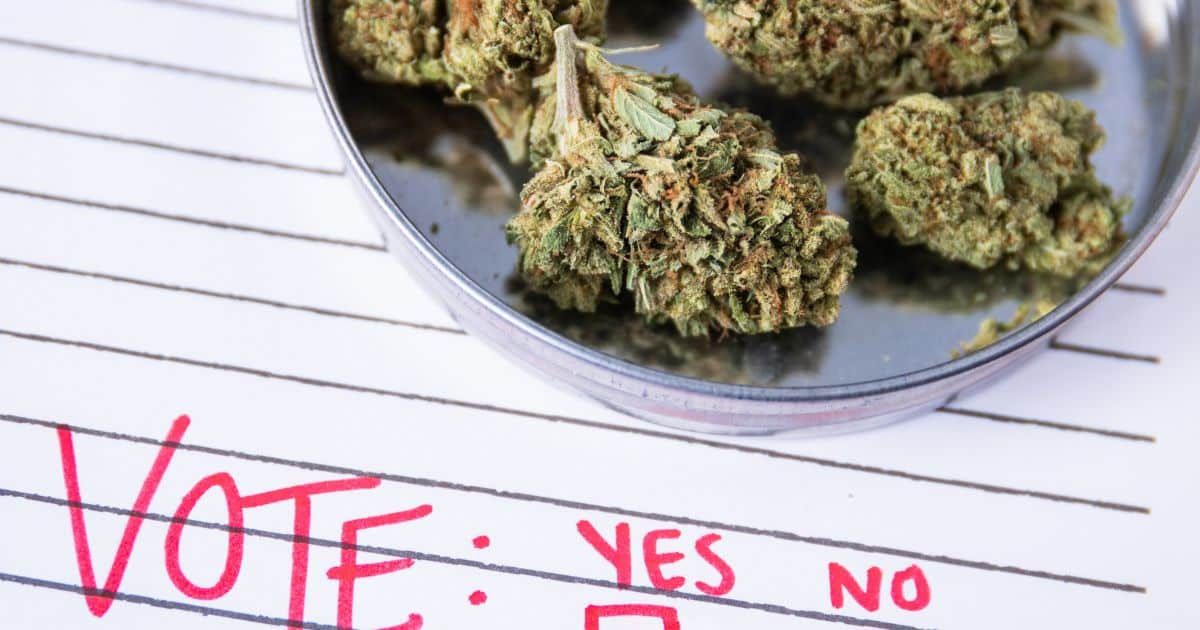Smart & Safe Florida, the political committee spearheading efforts to legalize recreational marijuana in Florida, has wasted no time regrouping after the 2024 defeat. Despite falling short of the 60% voter threshold required for constitutional amendments, the group is revising its approach with an eye toward success in the 2026 election.
Backed by medical marijuana giant Trulieve, Smart & Safe Florida has unveiled a redesigned proposal aimed at addressing concerns that may have contributed to their previous shortfall. This renewed effort is expected to include refined language, enhanced voter outreach strategies, and a stronger focus on rallying support from key demographics across the state.
The committee’s failure in 2024 highlighted gaps in public education around the economic and social benefits of adult-use legalization, as well as voter apprehensions tied to regulatory concerns. By leveraging lessons learned, Smart & Safe Florida intends to craft a campaign that resonates more effectively with Floridians.
As the 2026 ballot initiative takes shape, the broader implications for Florida’s cannabis landscape remain significant. A successful campaign could not only transform the state’s industry but also signal to other Southern states that adult-use legalization is politically viable in traditionally conservative regions.
The 2024 Shortfall and the New Game Plan
Last year’s proposed Amendment 3 garnered nearly 56% of Floridian voters’ support, falling short of the 60% supermajority required for constitutional amendments. Opposition from Governor Ron DeSantis and his allies played a significant role in the defeat. They raised concerns about public marijuana use, packaging appeal to children, and the amendment undermining the state legislature’s regulatory authority.
Taking these criticisms into account, the revised measure filed by Smart & Safe Florida includes revisions aimed at addressing those who opposed the 2024 initiatives’ concerns and building broader support among voters. The proposal explicitly prohibits smoking or vaping marijuana in public places and bans child-attractive marketing and packaging strategies. Furthermore, it clarifies that the legislature retains the ability to regulate marijuana consumption and even permits future discussions about allowing homegrown cannabis—one of the hotly debated omissions from the 2024 proposal.
Key changes in the 2026 proposal:
- Public smoking or vaping of marijuana is explicitly prohibited.
- Packaging and marketing appealing to children are banned.
- Legislature retains the right to regulate cannabis consumption and potentially allow homegrown marijuana.
- Adjusts possession limits to two ounces of marijuana and five grams of concentrates.
Trulieve’s Role
If you’ve been following Florida’s marijuana landscape, then you’ve likely heard of Trulieve. The state’s largest medical marijuana company is not just a passive player but the main financial backer of Florida’s push for recreational cannabis. During the 2024 campaign, Trulieve contributed over $144 million—almost 94% of the funds collected by Smart & Safe Florida.
Many critics accused Trulieve of monopolistic ambitions. With over 150 dispensaries across the state, Trulieve already controls more than one-third of Florida’s medical marijuana market. Legalization of recreational marijuana would allow the company to expand sales to adult-use consumers, opening an enormous market that remains untapped.
The new proposal also introduces a change that could potentially disrupt the dominance of top players like Trulieve. It includes language requiring the legislature to license new cannabis businesses to sell recreational marijuana without the need to follow “vertical integration” rules—where companies must grow, process, and sell their cannabis products. Whereas the 2024 amendment didn’t have any specific language for adding new licenses to the state. This move could pave the way for more competition, increasing the diversity of products available to Floridians.
Still, DeSantis remains a vocal critic of Trulieve’s influence on Florida’s cannabis space. The governor has gone as far as to call out its contributions as evidence of corporate monopolization, warning against “the highest bidder” shaping Florida’s constitution. Nonetheless, Smart & Safe Florida appears confident in its 2026 iteration, with renewed focus on gaining bipartisan support.
What Could 2026 Hold for Adult-Use Marijuana in Florida?
If nearly 900,000 signatures are gathered and the Florida Supreme Court approves the measure, voters can cast their judgment again in 2026. The revised proposal allows adults over 21 to possess up to two ounces of marijuana or five grams of concentrates and buy these products from licensed vendors.
The measure balances accessibility for consumers with prioritizing safety and regulation. The explicit ban on public use and child-focused marketing represents a concession to concerns raised by opponents. Coupled with provisions to include non-vertically integrated players, the industry could be poised for increased competition if this proposal passes.
However, hurdles remain. DeSantis and his team may still push back using various strategies, including proposed reforms to the petition and amendment process. Critics argue that these changes could make it more difficult for initiatives like recreational marijuana to gather support and appear on future ballots. Furthermore, opposition campaigns, similar to the one led by DeSantis against the 2024 proposal, could reemerge to challenge the reinvented initiative.
Why Florida Marijuana Legalization Matters
For advocates, legalizing recreational marijuana is more than just a policy change; it aligns Florida with national trends. Currently, 23 states and Washington, D.C., permit adult use of marijuana, and others may follow in the coming years. Legalization could also prove advantageous for Floridians in several ways, including bolstered tax revenue, job creation in the cannabis sector, and reduced strain on criminal justice systems. It just has to be with the right regulations.
Supporters of the proposal argue that society should treat responsible cannabis consumption like alcohol—regulated but accessible to adults who choose to partake. With medical marijuana usage already accepted across the state, the logical next step for advocates is to normalize and regulate broader adult use, ensuring safety through lab-tested, licensed products.
Florida’s path toward recreational marijuana legalization has been, and will likely remain, a contentious battle. Yet, the new proposal targeting 2026 reflects a strategic pivot informed by past missteps. With adjustments that directly address prior criticisms and an emphasis on safety, regulation, and competition, supporters hope this revised measure resonates with the electorate.




















